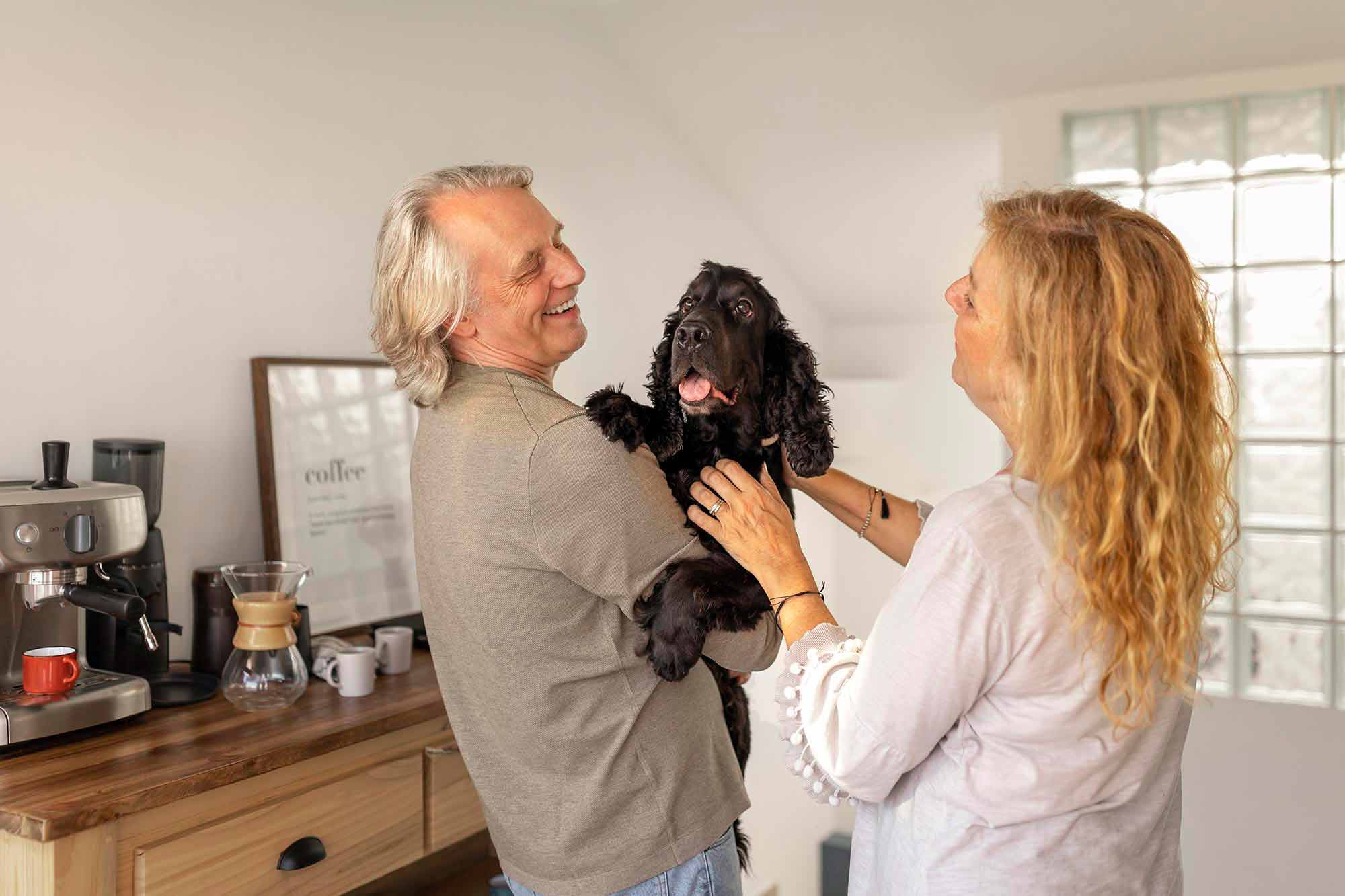
The benefits of a pet for the elderly

Since the pandemic entered our lives, more and more families are deciding to add a furry friend to their homes. Since 2020, the acquisition of pets has skyrocketed by 44%. Pets can provide countless benefits, especially for our seniors.
Generally speaking, the company of an animal can improve people's quality of life. They can increase our longevity, help us maintain our physical and mental balance, and reduce stress and serve as a great support for people suffering from anxiety or depression. The affection and happiness of a pet at home can be the best therapy for improving their health and well-being. As for older people, as we age, we begin to experience various deficiencies, situations, and new needs, such as loneliness, diseases and pathologies of old age, a sedentary lifestyle, and various age-related changes. Owning a pet helps these people combat many of these situations, in addition to improving their overall quality of life.
Some of the many benefits of having a pet at home in old age are:
- They stimulate physical activity

Therefore, a great accessory for seniors to go out for walks and enjoy their pets is the SaveFamily Senior watch. Not only will it allow a family member to track them in case they suffer from an illness that causes memory loss, but it also has a fall warning and many useful functions for the safety of our seniors.
- They reduce the feeling of loneliness
- They help combat sadness and depression
- They watch over the safety of their master
- They reduce stress
But which pet should I choose?

CATS
Cats bring serenity and tranquility to the elderly, as caring for them helps them forget their ailments. Cats don't require constant attention and tend to always seek their owner's warmth while they watch television or do some task that doesn't require much movement, thus bringing great peace to their caregiver.
Furthermore, cats don't require a large monthly fee, and they are animals that care a lot about their hygiene and can spend hours "grooming." It's important for them to have a litter box where they can do their business, which means the biggest chore you'll have is changing the litter every week. Older people say that cats, with their body heat, make many joint and muscle ailments disappear.
 DOGS
DOGSDogs, like cats, provide the same sense of tranquility to older adults. They require more dedication than cats, as they need to be taken outside at least three times a day to relieve themselves. Therefore, they are very suitable for older adults who enjoy walking and need daily motivation to do so.
The monthly cost of owning a dog can be slightly higher than that of a cat. Both dogs and cats offer grateful affection to their owners, as well as seeking touch and showing affection.
 BIRDS
BIRDSBirds can be a good option when, for some reason, you decide a cat or dog isn't a good fit. Birds provide companionship with their daily song and also foster a sense of belonging, knowing they need to be fed every day. However, it would diminish the bonding they offer through touch and the displays of affection that cats and dogs display.
Dogs and cats are incredibly beneficial to the health of seniors. Scientific research suggests that pet owners have lower blood pressure and a lower heart rate than other people. It's proven that owning a dog reduces your risk of heart attack and increases your one-year survival rate after suffering one. Elderly pet owners, when walking a dog, get exercise and ensure fewer doctor visits.
In conclusion, a pet can not only become an elderly person's best friend and companion, but it can also provide numerous benefits for their health and well-being. Furthermore, the presence of one of these animals in the home brings great joy and will positively transform their daily lives.